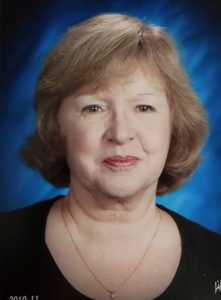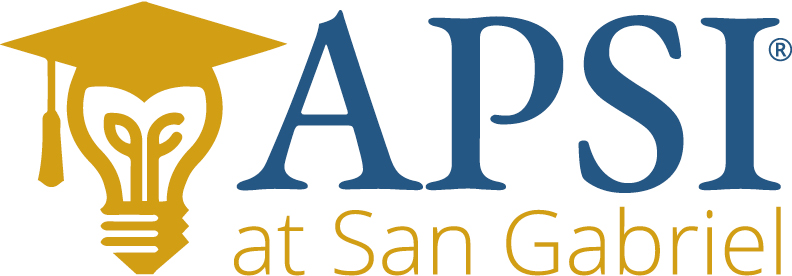Connie Wells
 Connie Wells has a Master of Science Degree in Physics from The University of Kansas and is currently an adjunct instructor of physics at Rockhurst University in Kansas City, Missouri. She has taught Physics, AP Physics B, AP Physics C and AP Physics 2 at the high school level for over twenty five years. She has been active in test scoring and development for The College Board since 1995, serving on the AP Physics B and C Test Development Committee from 1997-2001. In 2006, Connie was appointed to the AP Physics Redesign Commission and served as Co-Chair of the AP Physics 1 and 2 Curriculum Development and Assessment Committee; she became co-chair of the AP Physics 2 Development Committee from the time it formed until 2015. As a workshop leader and College Board institute consultant, she has presented teacher training institutes throughout the United States and abroad—including Edmonton (AB, Canada), Hawaii, Saipan (Northern Marianas Islands), Barranquilla (Colombia), Bangkok, Skopje (Macedonia), Shanghai, Tokyo, Harbin (China), Taipei (Taiwan), Hangzhou (China),
Connie Wells has a Master of Science Degree in Physics from The University of Kansas and is currently an adjunct instructor of physics at Rockhurst University in Kansas City, Missouri. She has taught Physics, AP Physics B, AP Physics C and AP Physics 2 at the high school level for over twenty five years. She has been active in test scoring and development for The College Board since 1995, serving on the AP Physics B and C Test Development Committee from 1997-2001. In 2006, Connie was appointed to the AP Physics Redesign Commission and served as Co-Chair of the AP Physics 1 and 2 Curriculum Development and Assessment Committee; she became co-chair of the AP Physics 2 Development Committee from the time it formed until 2015. As a workshop leader and College Board institute consultant, she has presented teacher training institutes throughout the United States and abroad—including Edmonton (AB, Canada), Hawaii, Saipan (Northern Marianas Islands), Barranquilla (Colombia), Bangkok, Skopje (Macedonia), Shanghai, Tokyo, Harbin (China), Taipei (Taiwan), Hangzhou (China),
Beijing, and most recently in Pudong, Shanghai. In August, 2015, she was named Woman Physicist of the Month by the American Physical Society.
Overview
Participants in this summer institute will have the opportunity to meet and learn from others who are developing Advanced Placement Physics programs in their schools. Current and aspiring AP Physics 1 and/or AP Physics 2 teachers will strengthen their knowledge of the subject, become familiar with the AP Physics program and its changing scope and sequence, and develop laboratory and demonstration materials for use in their own classrooms. They will come away from the institute with many materials, including the College Board AP Physics packet, tests and solutions from past years, sample course syllabi, and the solutions to the 2020 exams. Time will be spent working on problem solving techniques and discussing approaches to teaching AP Physics —including the role of vertical teaming, development of a course syllabus, and designing labs and assessments that address higher order thinking skills. Participants will be given the opportunity to work in small groups to model inquiry-based laboratory design increasingly emphasized by the AP Physics courses, selecting the lab work from a variety of options that best fit the teacher’s course needs. As time permits, new AP teachers will be given guidance in preparing a course syllabus. Participants should bring a calculator, notebook and a few optional items such as a laptop or ipad, handout or favorite demonstration to share, and simple tools (scissors, pliers, screwdrivers).
Agenda
Day 1
- Introductions
- Overview of institute goals
- Review of materials supplied for participants
- AP Physics 1 & 2 course content and Curriculum Frameworks
- Presentation of new AP Online materials for AP teachers in 2019
- Test specifications
- Team preparations of Free Response questions for presentation
- Discuss a plan for preparation of individual course syllabi/timelines
- Activities for mechanics (Phys 1) and optics (Phys 2)
Assignments:
- Prepare your assigned Free Response question for presentation to the class
- Look over all 2020 free response exam questions
- Begin work on course syllabus/timeline (required for credit participants but recommended for everyone)
Day 2
- Presentations of solutions to 2020 Free Response questions for both exams.
- Discussion of the process of preparing, reading and scoring AP exams
- The lab inquiry process
- Laboratory journal/student lab records
- Electrostatics and electric circuit demonstrations
- Construction and testing of What’s Watt apparatus
- Design lab experiments, using the student lab inquiry model, selecting from experiments that fit each teacher’s course needs
Assignments:
- Work on published sample multiple choice exams
- Prepare a course outline—your own version of the Course at a Glance
Day 3
- Examination and discussion of multiple choice questions and ranking
- Small group work and presentations of selected lab experiments
- Optics demonstrations
- Construction of LED viewers (Phys 2) and motor oscillators (Phys 1)
- Diffraction and Planck’s Constant experiments for Physics 2 and Harmonic Motion for Physics 1
Assignments:
- Work on course syllabus
- Bring in a “Best Practice’ (optional)
Day 4
- Finish going over multiple choice examples and ranking of achievement levels
- Discuss testing of laboratory skills on the exam
- Develop a summary of ideas for a laboratory plan
- “Best Practice” presentations
- Laboratory report and course outline due from credit participants*
- Drawing for giveaways
- Workshop evaluation
*Note: Credit participants are required to turn in a course outline and the complete write-up of one laboratory experiment done during the week.
















